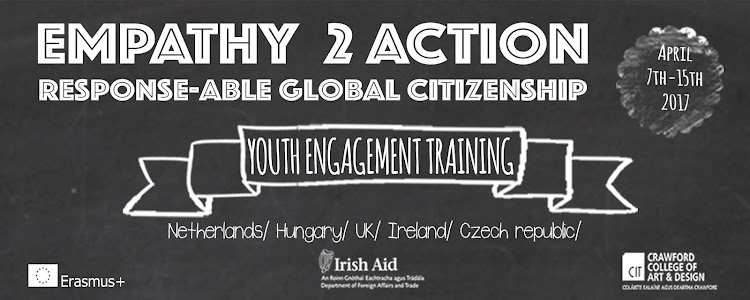This training is under Erasmus + mobility for youth workers
Erasmus+ is the European Union programme for education, training, youth and sport for the years 2014 to 2020. It provides funding and support for organisations to operate projects consistent with its objectives and which encourage European exchange, co-operation and learning. Erasmus+ is funded by the European Union through the contributions of member states, including Ireland. Funding of almost €170 million has been allocated to Ireland for the duration of the programme.
Erasmus+ funding is available to all sectors (or fields) of formal, informal and non-formal education. Structurally, Erasmus+ is divided into three ‘Key Actions’ describing the kind of project activities possible.
What are the programme objectives?
Erasmus+ aims to modernise and improve the quality of teaching, training and youth work across Europe, and to support the development, transfer and implementation of innovative practices. These objectives are closely tied with the Europe 2020 strategy of achieving a smart, sustainable and inclusive economy by 2020 for all of Europe’s citizens. Fundamental goals for Erasmus+ include improving key competences and skills, and fostering partnerships between education and employment. The programme also seeks to promote European values as stated in Article 2 of the Treaty on European Union: respect for human dignity, freedom, democracy, equality, the rule of law and respect for human rights.
Who can participate?
Erasmus+ is open to private or public organisations active in the fields of adult education, higher education, school education, sport, vocational education and training, and youth and community work, in any participating country. While the programme enables individuals to travel, work, volunteer and study abroad, project applications from individuals themselves are not accepted. However, individuals may apply to attend Transnational Cooperation Activities with the support of their organisations.
Management and Structure
Management of the programme is divided between the Directorate General for Education and Culture (DGEAC) of the European Commission, and National Agencies in the participating countries. Léargas is the Irish National Agency for Erasmus+ in the adult education, school education, vocational education and training, and youth fields. For Erasmus+ in higher education, please contact the Higher Education Authority.
Erasmus+ for the Youth Sector
Erasmus+ provides funding to Irish youth organisations and informal groups of young people to carry out a wide range of projects promoting exchange, cooperation, volunteering, and civic engagement.
These include arranging youth exchanges between groups of young people; sending or hosting volunteers through the European Voluntary Service (EVS); or sending youth workers for job shadowing or training in other participating countries (all under Key Action 1). Youth organisations can collaborate with other relevant organisations to meet common challenges in innovative ways, exchange good practice, or set up a Transnational Youth Initiative (all under Key Action 2). They can also hold Structured Dialogue projects to facilitate discussion between young people and decision makers (under Key Action 3). Click on the orange ‘by key action’ tab above to find out more about each Key Action.
Youth organisations may also participate in some parts of Erasmus+ that are managed centrally by the European Commission, including Capacity Building. Erasmus+ emphasises the organisational, local and national benefits of participation so while individuals can take part in the projects, it is the organisation rather than the individual that applies for project funding. However, individuals (with the support of their organisation) may apply to attend international meetings called Transnational Cooperation Activities (TCAs) where relevant.
For more, have a look at this Prezi that ThinkVisual made for us about how Erasmus+ can work for the youth sector.


No comments:
Post a Comment